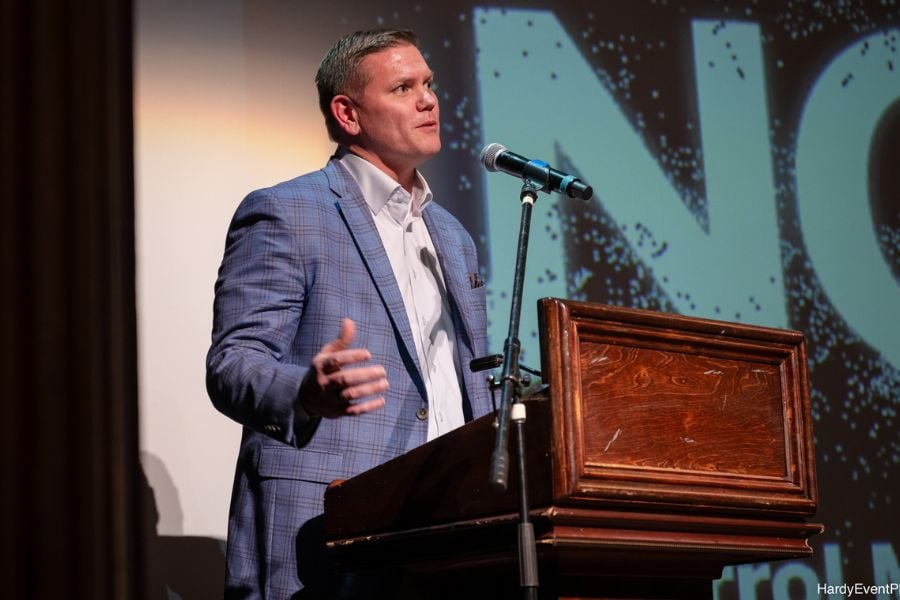

For Patrick Rush, the core of his personal and professional strategy at OneDigital revolves around holistic financial planning. He says that this practice has been the foundation of what his team has been doing for a long, long time.
“It's really thinking at a more comprehensive 40,000-foot level approach, getting down to the details of everything involved in the financial plan, and making it a lot more personal,” he tells IN.
Rush stresses that their process is not just about the client but also about involving other key professionals.
“We want this to be a collaborative process, not only with a particular client or family but also getting CPAs, estate planning attorneys, other insurance professionals involved. We aim to create that concierge-level service that supports the financial plan,” Rush explained.
It’s this holistic approach that he believes equips them to make prudent decisions for their clients. Investment philosophy, however, should never lead the financial planning process.
“A lot of times, people lead with the investments. That's not the way we do it. We're always leading with financial planning to be able to make good decisions.”
The initial phase involves simple data gathering, understanding the clients, and having honest conversations about their intentions.
“The data gathering is probably no different than many other places in terms of the information necessary to put together a financial plan, but it’s more about conversations and getting into more of those goals and the intentions behind them.”
Key elements of their data gathering include assets, liabilities, cash flow, budgeting, and tax documents. However, Rush highlights a distinctive approach to risk assessment.
“We're not just looking at risk tolerance, which is what most people talk about and is more emotionally driven based on current market or political conditions. We also consider risk requirement and risk capacity. Risk requirement being how much risk is necessary to achieve these goals, and risk capacity being the maximum amount of risk an investor can take without jeopardizing income needs and overall financial planning goals.”
And Rush underscores the importance of flexibility in financial planning, noting that the plans they create are living documents.
“We want to make them very flexible and they become the crux of every conversation with clients going forward because we know life happens and things change,” he says.
But it’s on the organization’s internal structure where Rush is most proud of their standards.
“We don't allow any of our advisors to provide financial planning or investment advice unless they've obtained the CFP certification,” he says. This ensures a high level of expertise and professionalism. Additionally, they collaborate closely with CPAs and attorneys, which aids in providing comprehensive services.
“We have a CPA firm next door, so we can easily collaborate, ask questions, and go back and forth. For our high net worth clients, we help subsidize some of those tax returns and estate planning needs. We prefer to stay in our lane, focusing on what we do best.”
When discussing retirement income strategies, Rush points out the challenges clients face transitioning from the accumulation phase to drawing from their portfolio.
“The decumulation phase is a lot harder than the wealth accumulation phase. Clients often have the hardest time getting their arms around pulling money from the portfolio. It’s a very emotional time when you don’t have a paycheck coming in anymore.”
To help clients adjust, they create a “portfolio paycheck” to simulate regular income. Rush also explains the difficulty of establishing a standard approach due to the diverse needs and goals of clients here.
“Most people want to spend more when they're younger and healthier in the early years of retirement. Those withdrawal rates might be higher initially. We manage that by deciding which portions of the portfolio to pull from, considering factors like taxes, Medicare premiums and Social Security.”
Looking at industry trends, Rush says that financial planning has evolved significantly – and will only continue to do so.
“The foundation of our firm has always been financial planning,” he tells IN. “More and more advisors are actually doing financial planning now instead of just focusing on investments. That’s great because clients expect comprehensive planning. Unlike many other industries where costs have gone up, the cost of working with a financial advisor has actually gone down, thanks to lower asset management fees and transaction costs.”
And for younger professionals looking to soar to Rush’s dizzying financial heights, he has some sage and somewhat wholesome advice.
“Experience is everything in this business. Life events like marriage, raising children, divorce, buying/selling and owning a business, and aging parents make a huge difference in my ability to help clients. Clients choose you because they trust you and know you have a good heart. Lead with heart and win with hustle.”

Relationships are key to our business but advisors are often slow to engage in specific activities designed to foster them.

Whichever path you go down, act now while you're still in control.

Pro-bitcoin professionals, however, say the cryptocurrency has ushered in change.

“LPL has evolved significantly over the last decade and still wants to scale up,” says one industry executive.

Survey findings from the Nationwide Retirement Institute offers pearls of planning wisdom from 60- to 65-year-olds, as well as insights into concerns.
Streamline your outreach with Aidentified's AI-driven solutions
This season’s market volatility: Positioning for rate relief, income growth and the AI rebound
